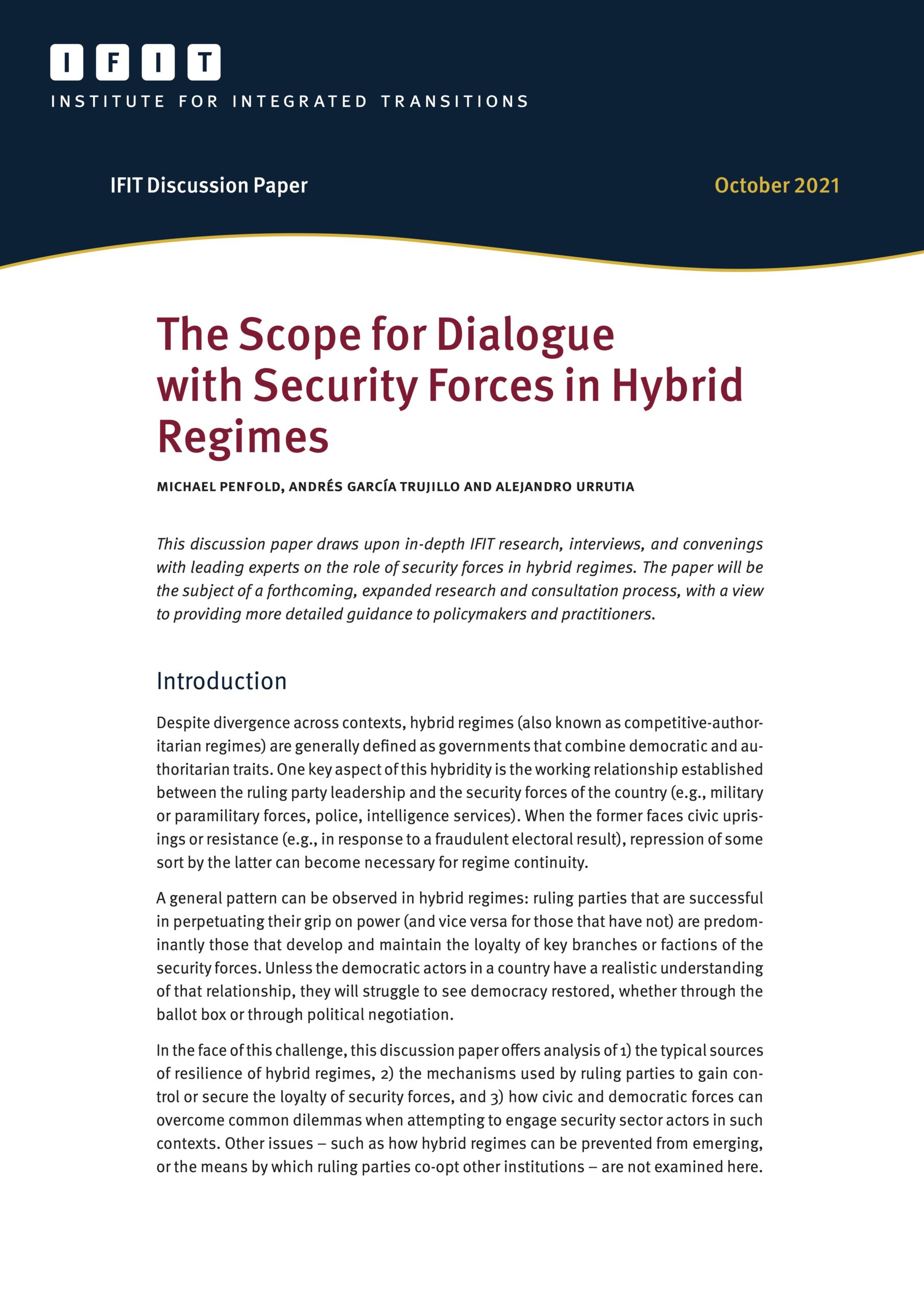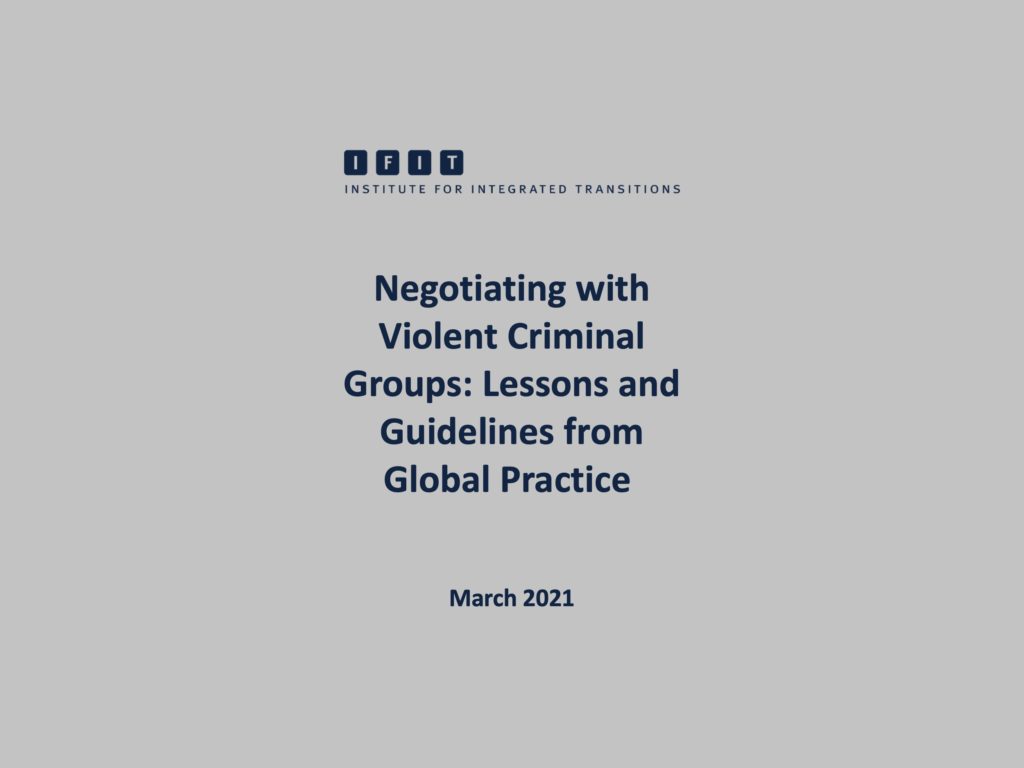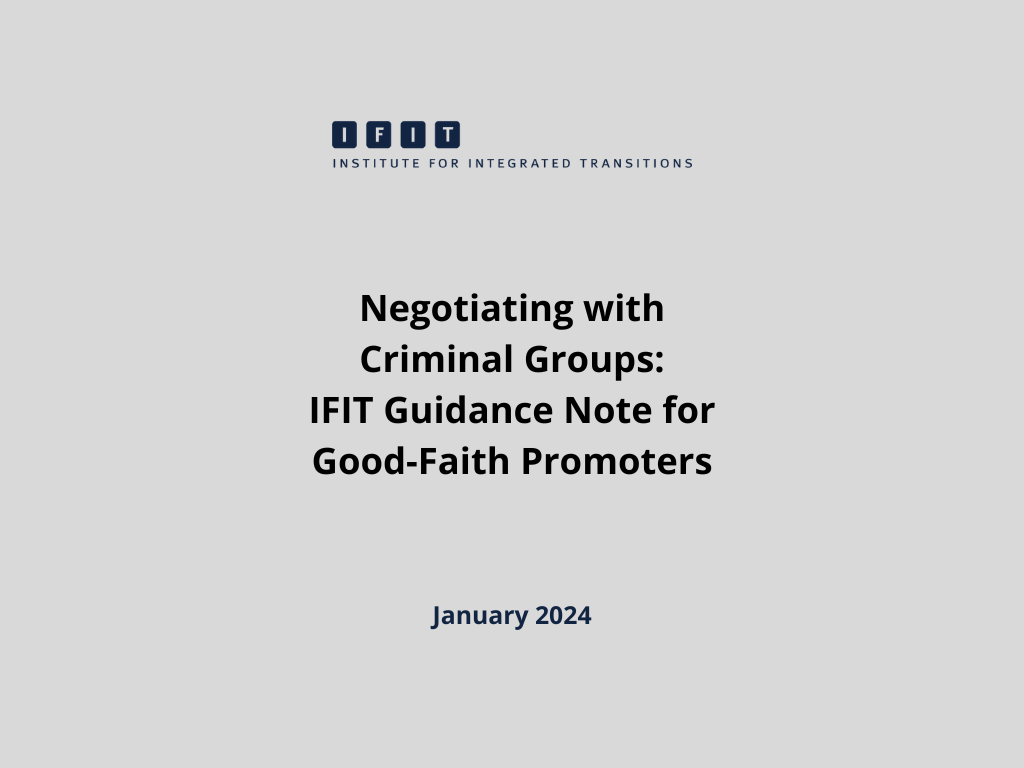Publication
/ Law and Peace
Oct 2021
The Scope for Dialogue with Security Forces in Hybrid Regimes
Hybrid regimes are generally defined as governments that combine democratic and authoritarian traits. They are flexible by definition and design and can quickly transform from what appears to be a democratic phase with competitive elections and some political openness, to a phase that is more politically restrictive and repressive – and then back again.
This IFIT discussion paper – which draws upon in-depth IFIT research, interviews, and convenings with leading experts on the role of security forces in hybrid regimes – offers evidence-informed analysis of 1) the typical sources of resilience of hybrid regimes, 2) the mechanisms used by ruling parties to gain control or secure the loyalty of security forces, and 3) how civic and democratic forces can overcome common dilemmas when attempting to engage and dialogue with security sector actors in such contexts.
The DOI registration ID for this publication is: https://doi.org/10.5281/zenodo.10473758
You may also be interested in
Hybrid regimes are generally defined as governments that combine democratic and authoritarian traits. They are flexible by definition and design and can quickly transform from what appears to be a democratic phase with competitive elections and some political openness, to a phase that is more politically restrictive and repressive – and then back again.
This IFIT discussion paper – which draws upon in-depth IFIT research, interviews, and convenings with leading experts on the role of security forces in hybrid regimes – offers evidence-informed analysis of 1) the typical sources of resilience of hybrid regimes, 2) the mechanisms used by ruling parties to gain control or secure the loyalty of security forces, and 3) how civic and democratic forces can overcome common dilemmas when attempting to engage and dialogue with security sector actors in such contexts.
The DOI registration ID for this publication is: https://doi.org/10.5281/zenodo.10473758







